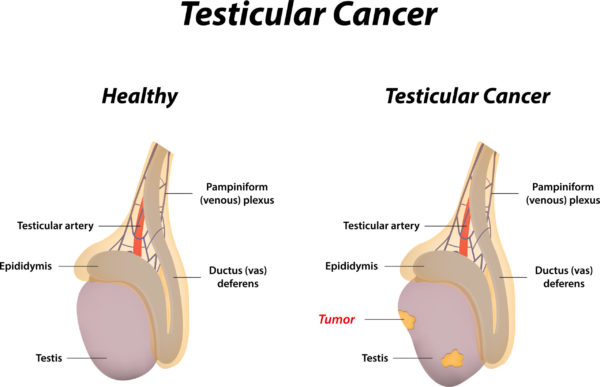Dr Shalabh Agrawal, Consultant, Urology, C.K. Birla Hospital, Gurugram, told IANS that the most common symptom of testicular cancer is a painless enlargement in one of the testicles…reports Asian Lite News
Although rare and curable, young men must be aware of testicular cancer, which can severely impact their reproductive health, say experts.
Testicular cancer is not only rare worldwide, but also in India. The country has one of the lowest incidences of testicular cancer with less than 1 man per 100, 000 population affected by this condition. However, it is the most common cancer in young men aged 15 to 35 years, and can significantly affect their fertility levels.
“Testicular cancer has a direct impact on the organs that produce sperm, which may interfere with the ability to reproduce,” Dr Pallavi Prasad, Fertility Consultant, Nova IVF Fertility, Basaveshwara Nagar, Bengaluru, told.
“Surgery is frequently used as the primary therapy for testicular cancer, which involves removing the cancerous testicle. While this surgery tries to eliminate malignant cells, it may influence sperm production. Even if the remaining testicle is healthy, sperm production might be temporarily or permanently impaired,” she added.
In addition, chemotherapy and radiation therapy, used to target cancer cells throughout the body, can also cause collateral harm to sperm cells, reducing sperm production and quality. The doctor suggested fertility preservation methods, like sperm banking to save sperm samples before cancer treatment.
“Men can maintain the prospect of biological parenting by storing sperm before treatment, even if cancer therapy influences fertility. However, it is important to note that fertility preservation methods may not be available to all men, and the decision to explore such treatments might be difficult. Treatment urgency, financial factors, and personal preferences may all impact people’s fertility preservation decisions,” Dr Prasad said.
Although precise reasons behind testicular cancer are not yet understood, risk factors include early exposure to oestrogens via hormone therapy, and congenital conditions like small testes, or undescended testes (cryptorchidism), among others.
Dr Shalabh Agrawal, Consultant, Urology, C.K. Birla Hospital, Gurugram, told IANS that the most common symptom of testicular cancer is a painless enlargement in one of the testicles.
“This is in contrast to a sudden, painful enlargement, which is more likely to be due to an infection rather than cancer. If a patient is being treated for a long-standing testicular infection but the enlargement persists, they should be screened for the possibility of testicular cancer,” he added.
Yet, “testicular cancer is considered a highly treatable form of cancer, with a 10-year survival rate exceeding 90 per cent,” Dr Agrwal said, stressing the need for early detection via self-examination.
“The self-examination should be performed daily, after showering, by gently palpating both testicles to check for any abnormalities in size, position, or the presence of lumps or swelling. If any such changes are detected, it is essential to promptly report them to a healthcare provider for further evaluation and appropriate management,” he added.
ALSO READ-Tackling the Breast Cancer Challenge








